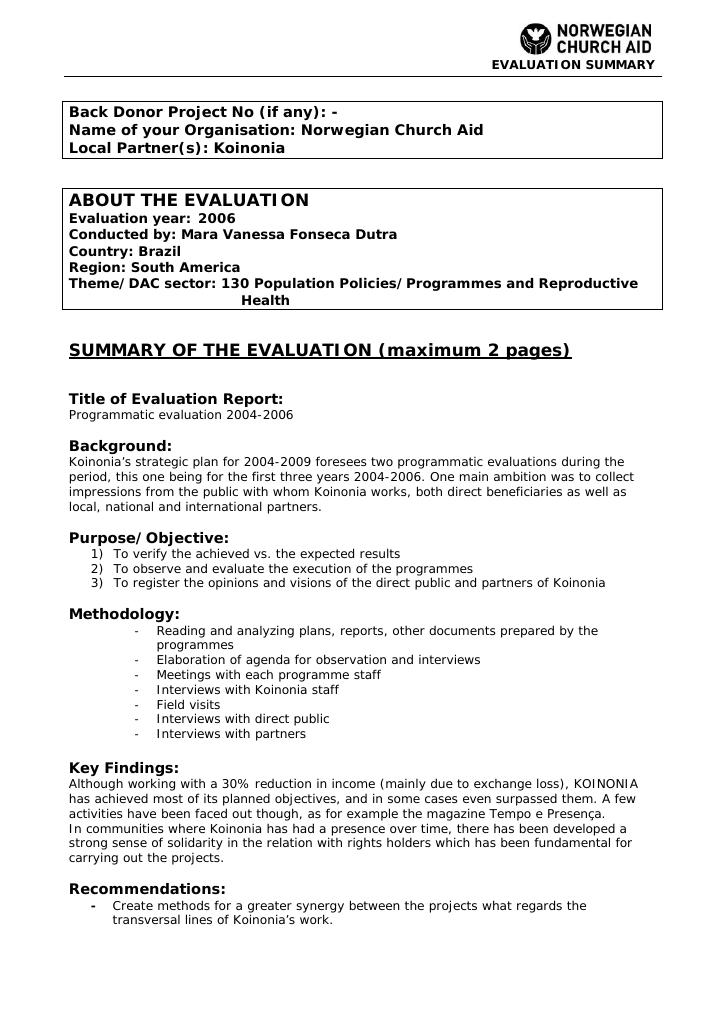Evaluering
Programmatic evaluation 2004-2006
Background Koinonia's strategic plan for 2004-2009 foresees two programmatic evaluations during the period, this one being for the first three years 2004-2006. One main ambition was to collect impressions from the public with whom Koinonia works, both direct beneficiaries as well as local, national and international partners. Purpose/objective 1) To verify the achieved vs. the expected results2) To observe and evaluate the execution of the programmes3) To register the opinions and visions of the direct public and partners of Koinonia Methodology - Reading and analyzing plans, reports, other documents prepared by the programmes- Elaboration of agenda for observation and interviews- Meetings with each programme staff- Interviews with Koinonia staff- Field visits- Interviews with direct public- Interviews with partners Key findings Although working with a 30% reduction in income (mainly due to exchange loss), KOINONIA has achieved most of its planned objectives, and in some cases even surpassed them. A few activities have been faced out though, as for example the magazine Tempo e Presença.In communities where Koinonia has had a presence over time, there has been developed a strong sense of solidarity in the relation with rights holders which has been fundamental for carrying out the projects. Recommendations - Create methods for a greater synergy between the projects what regards the transversal lines of Koinonia's work.EVALUATION SUMMARY- Working on how to amplify the effect of their programmes, through formation of "multiplicators". Comments from the organisation Recommendations will be considered when elaborating the new three-year plan. NCA will follow the process.
